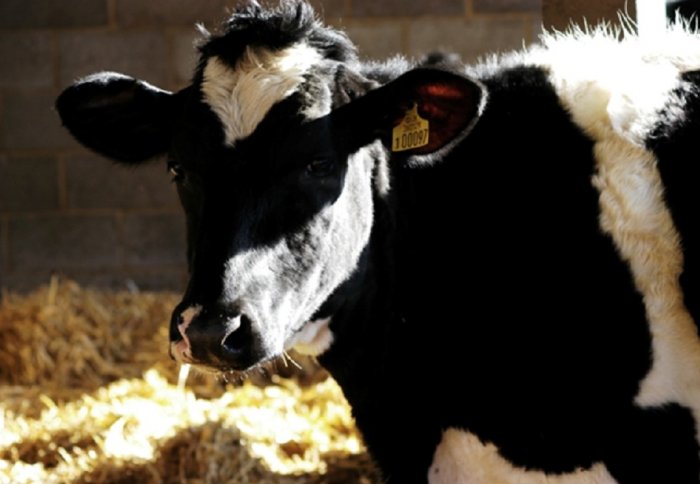New method to estimate bovine TB risk over time from targeted surveillance

Cow in GB
Current analyses of targeted surveillance data produce artefactual fluctuations. An alternative approach which avoids this problem is demonstrated.
Bovine TB causes a large strain on agricultural practices in Great Britain. Cattle that are found to have been exposed to the infection are compulsorily slaughtered and movement restrictions are placed on affected cattle herds. It is therefore critical to understand how the national incidence of bovine TB is changing over time.
The infection is mostly asymptomatic and so cattle in Great Britain are routinely tested whereby herds with a previous history of bovine TB are generally tested more frequently than herds in areas with no previous history of the disease.
Based on data from this targeted surveillance programme, Defra reports the percentage of cattle herds tested per month that are positive. This percentage showed two large fluctuations between 2003 and 2010.
Our work shows that these fluctuations are artefacts from the method currently used to analyse the routine surveillance data, and may result when large numbers of herds are shifted to more frequent testing. We demonstrate that an alternative method, first described by Sir David Cox (Oxford University), that attributes detected incidents across the testing period (rather than solely to the time of the test) is a more appropriate method to represent the underlying national trend and should be considered in future.
Related Links |
||
|---|---|---|
|
Imperial |
MRC Centre Tuberculosis in Cattle and Badgers |
Publication Link |
Article supporters
Article text (excluding photos or graphics) © Imperial College London.
Photos and graphics subject to third party copyright used with permission or © Imperial College London.
Reporter
Isobel Blake
School of Public Health
Professor Christl Donnelly CBE FMedSci FRS
School of Public Health
James Hayward
School of Public Health